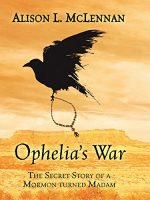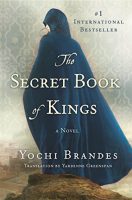An epic historical novel in the tradition of Norman Mailer and Ken Follett. Chronicling nearly a century of American involvement in Guatemala, Hard Red Spring erupts with authenticity. Beginning in 1902 with the disappearance of the daughter of murdered American farmers, little Evie’s story and influence play out across generations of commercial and religious missionary culture, and highlight the inevitability of Guatemalan life, belief and politics.
We are carried forward to 1954 and an era of direct American interventionism, as the wife of the U. S. Ambassador becomes pregnant by her best friend’s husband. The story then follows a Christian evangelist in the late ’80s, and the return of a young mother and her adopted war-orphan daughter near the end of the millennium. A sense of desperation pervades the book, but throughout, the common denominator is the silent witness of the native Maya: stoic, mystical, fundamentally unchanged by their absorption of the blood, tears, betrayal, and even the seed of their North American would-be overlords.
Richly styled, definitively researched, the book is everything the thoughtful reader of historical fiction could hope for. Enthusiastically recommended.
Review first published in The Historical Novel Review
BONUS RECIPE
Hand-cut Pumpkin Tortellini with Roasted Garlic and Mint Gastrique
For the Pasta:
2 cups flour
1/3 cup pumpkin pie filling
3 egg yolks
1/4 teaspoon salt
Water (a few teaspoons if needed)
Process and knead together to a non-sticky dough.
Roll out on a floured surface to 1/8th inch or thinner.
Cut into 3" to 4" squares.
Spoon up to 1Tablespoon of filling into center, if desired (consider more pumpkin filling, cinnoman ricotta, or cooked ground lamb with seasoned breadcrumbs).
Fold into triangles, pinch edges to seal, circle "arms" and press together.
Cook in large amount of boiling water for 4 minutes and drain immediately.
For the gastrique:
1 cup fresh picked mint leaves plus more chopped for garnish
2 cloves garlic (preferably roasted)
1/4 cup extra virgin olive oil (best available)
1 Tablespoon white vinegar
1 Tablespoon fresh lemon juice
1 teaspoon sugar
1/4 teaspoon salt
Pinch white pepper to taste
Blend all or mortar well. Squeeze or spoon under and over Tortellini.
Garnish with more chopped mint and grated Parmesan. Serves 3-5.
BONUS RECIPE
Hand-cut Pumpkin Tortellini with Roasted Garlic and Mint Gastrique
For the Pasta:
2 cups flour
1/3 cup pumpkin pie filling
3 egg yolks
1/4 teaspoon salt
Water (a few teaspoons if needed)
Process and knead together to a non-sticky dough.
Roll out on a floured surface to 1/8th inch or thinner.
Cut into 3" to 4" squares.
Spoon up to 1Tablespoon of filling into center, if desired (consider more pumpkin filling, cinnoman ricotta, or cooked ground lamb with seasoned breadcrumbs).
Fold into triangles, pinch edges to seal, circle "arms" and press together.
Cook in large amount of boiling water for 4 minutes and drain immediately.
For the gastrique:
1 cup fresh picked mint leaves plus more chopped for garnish
2 cloves garlic (preferably roasted)
1/4 cup extra virgin olive oil (best available)
1 Tablespoon white vinegar
1 Tablespoon fresh lemon juice
1 teaspoon sugar
1/4 teaspoon salt
Pinch white pepper to taste
Blend all or mortar well. Squeeze or spoon under and over Tortellini.
Garnish with more chopped mint and grated Parmesan. Serves 3-5.






